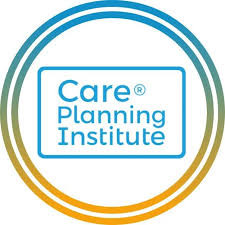Work Unit Overview: A Registered Nurse (RN) or Licensed Practical Nurse (LPN) provides nursing and nursing related services to residents consistent with each resident's comprehensive resident assessment and plan of care. All resident care is provided in a manner that meets the resident's physical, mental and psycho social needs and enables the individual to attain or maintain the highest practicable level of functioning. Provides supervision of health care personnel in maintaining a "homelike environment for the residents, protects and promotes resident rights and assists the person to maintain independence and controls to the greatest extent possible.
Job Summary: RN or LPN assesses patient health problems and needs, develops and implements nursing care plans, and maintains medical records. Duties include administering nursing care to ill, injured, convalescent, or disabled patients. May also advise patients on health maintenance and disease prevention or provide case management. An RN/LPN oversees the work of other health care personnel as required.
- Direct or supervise nursing assistants/aides, or other healthcare personnel to ensure proper performance of duties according to health care standards and departmental policies. May supervise a particular unit.
- Consult and coordinate with healthcare team members to assess, plan, implement, or evaluate patient care plans and modifies patient treatment plans as indicated by patients' responses and conditions.
- Order, interpret, and evaluate diagnostic tests to identify and assess patient's condition. Monitor all aspects of patient care, including diet and physical activity.
- Monitor, record, and report symptoms or changes in patients' conditions. Maintain accurate, detailed reports and records, and record patients! medical information and vital signs.
- Instruct individuals, families, or other groups on topics such as health education, disease prevention, or childbirth and develop health improvement programs.
Administer prescribed medications or start intravenous fluids, noting times and amounts on patients' charts; take and records temperatures, pulses, respiration, and blood pressure readings; transcribe written physicians' orders to medication and treatment records; observe and report patient's symptoms to a Physician's Assistant or Physician.
- Observe patients, charting and reporting changes in patients (conditions, such as adverse reactions to medication or treatment, and taking any necessary action.
- Provide basic patient care or treatments, such as taking temperatures dressing wounds, treating bedsores, giving enemas or douches, rubbing with alcohol, massaging, or performing catheterizations. Sterilize equipment and supplies, using germicides, sterilizer, or autoclave.
- Assist physicians or other RNs in examinations or special procedures; catheterize patients and gives enemas; provides general patient care; such as bathing, feeding, turning, and transporting patients; assist with or applies and/or changes dressings; may assist in orthopedic care such as applying and removing casts, setting up and inspecting traction.
- Answer patients' calls and determine how to assist them.
- Measure and record patients' vital signs, such as height, weight, temperature, blood pressure, pulse, and respiration.
Work as part of a health care team to assess patient needs, plan and modify care, and implement interventions.
Collect samples, such as blood, urine, or sputum from patients, and perform laboratory tests on samples.
Communicate with other health care facilities or ancillary services regarding patient care needs. Prepare patients and assist with administering examinations, tests, or treatments and explain procedures.
- Assemble and use equipment, such as catheters, tracheotomy tubes, or oxygen suppliers.
- Assist in providing services and care in maternal/child, and medical-surgical settings, outpatient clinics, public health clinics, and public health or mental health outreach services,
- Comply with established department, unit, hospital policies, procedures objectives, quality assurance, safety, supply inventory and utilization regulations, environmental and infection control.
- Performs other duties as assigned.
Must be a graduate from an accredited nursing school with a four-year degree (preferred for RN position), and one (1) to two (2) years experience in an acute care unit. Possession of a valid Montana license as a RN or LPN. Current CPR Certification required.
Must maintain a good citizen court record free of abusing, neglecting or mistreating individuals in a health care related setting.
The job requires freedom from illegal use of drugs and freedom from use and effects of drugs and alcohol in the workplace.
Persons who have been found guilty by a court of law of abusing, neglecting or mistreating individuals in a health care setting are ineligible for employment in this position.
Must pass a background check.This job requires knowledge of RN/LPN nursing theory and practice, hospital rules, regulations and procedures; medical vocabulary commonly used in conveying instructions and orders between doctors, nurses, and para-professional nursing employees; and medical supplies and equipment, their care and use.
This job requires knowledge of patient rights and confidentiality requirements of patient information and established communications codes; basic communicable disease; infection control practices and procedures; basic emergency care including cardiopulmonary resuscitation (CPR); the use, administration, and effects of narcotics and medicines, as well as behavioral patterns of suspected alcoholic, narcotic, and emotionally disturbed individuals. This job requires the ability to perform physical assessments; take health histories; assess and review lab results; provide primary nursing care; detect suicidal behavior; follow oral and written directions of nursing technical and professional nature; work as part of a team; deal with patients sympathetically and tactfully; maintain and interpret medical records and reports; learn procedures to start, superimpose and monitor non-medicated intravenous fluids in order to acquire certification; draw blood; stand and walk for long periods and work under mental and physical strain; establish and maintain effective working relationships with people on the job cooperate with other personnel to achieve departmental objectives and maintain effective employee, interdepartmental and public relations; maintain patient rights and confidentiality of patients information and abide by established communications codes.

